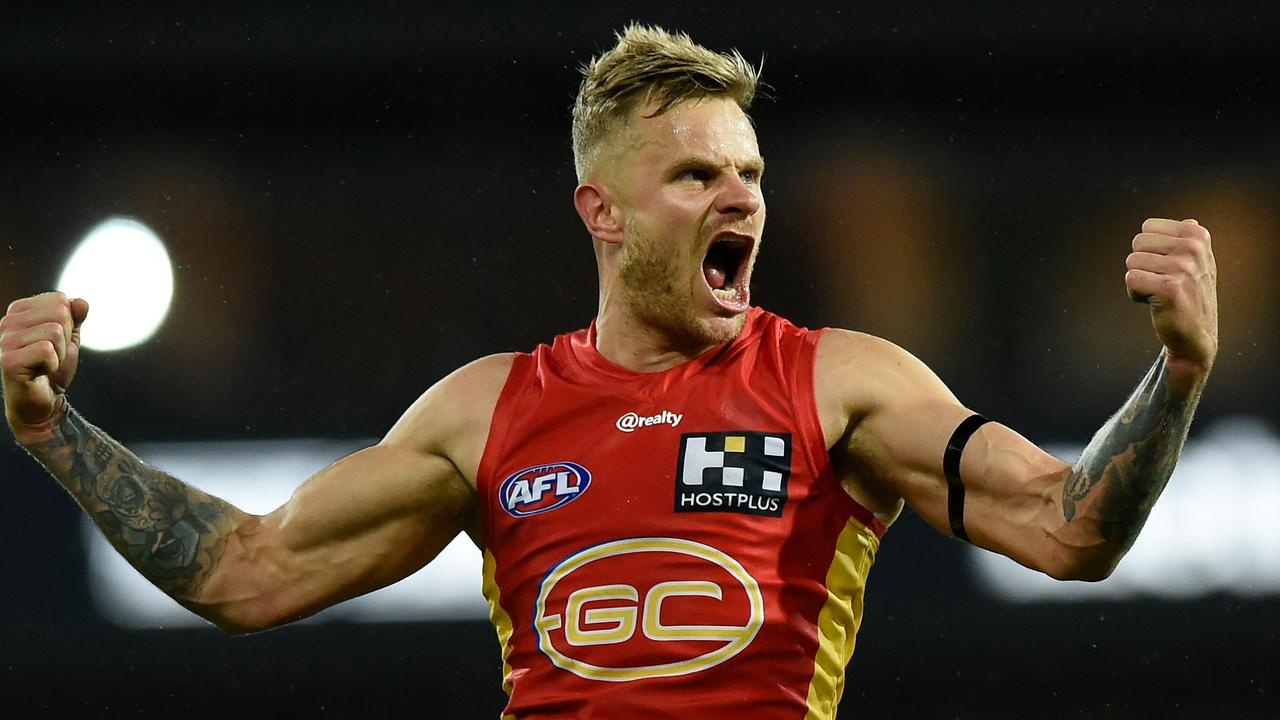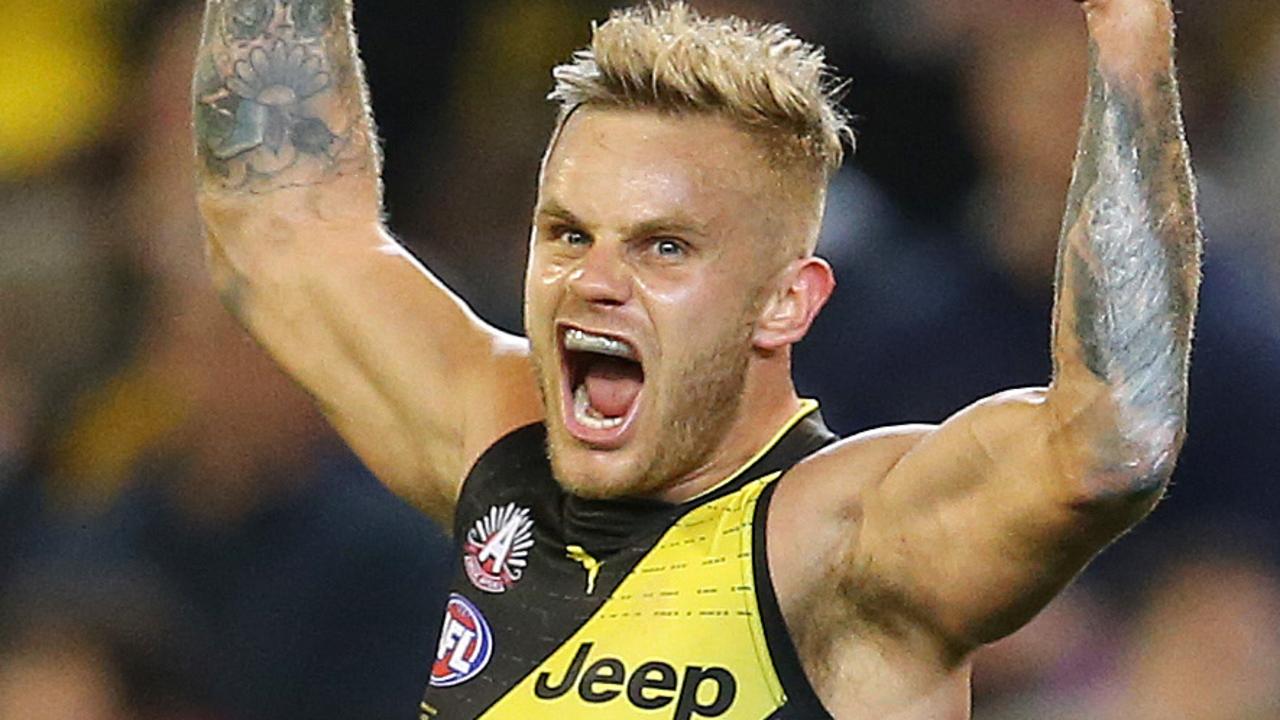Southport Sharks VFL join forces with BioEye to help tackle concussion intervention
A Gold Coast star believes a new innovation designed to drastically improve concussion treatment could trigger widespread growth in Aussie rules’ grassroots.
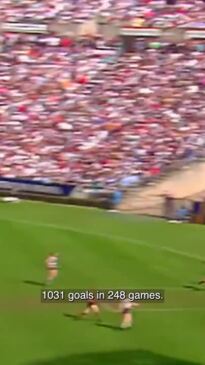
Local Aussie Rules
Don't miss out on the headlines from Local Aussie Rules. Followed categories will be added to My News.
Southport Sharks star Zac Foot believes a new innovation designed to drastically improve concussion treatment could trigger widespread growth in Aussie rules’ grassroots.
The Gold Coast VFL outfit have joined forces with BioEye; a smartphone app which utilises eye-tracking to measure brain health and identify irregularities upon suffering a head knock.
In what has been an Australian-first trial, the application aims to detect health-related problems such as concussions and the onset of Chronic Traumatic Encephalopathy (CTE).
And Foot believes that as the game seeks to inspire a fresh wave of juniors through to the upper echelon of the code, such innovation needed to spread across the local levels.
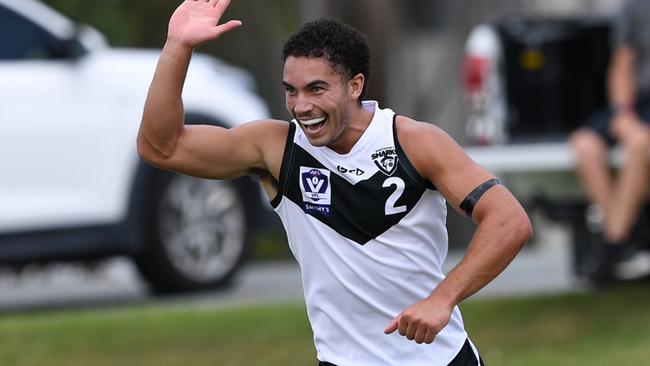
And Foot believes that by implementing safety measures such as BioEye, these moves could ensure more families join the code and remain actively involved.
He said by then transitioning this technology into community and semi-professional football, where the onset of concussion may not be identified as easily as in the AFL ranks, that confidence in health could be the catalyst for a participation surge.
“I think it’s probably the number one thing you see the most where you get knocked out as a kid or even in local players and they continue to play because the education probably is not there and the technology is not there as well,” Foot said.
“AFL is a contact sport and I think parents probably worry about that with their kids a lot of the time as well whether footy is too rough or they just want to put them in a non-contact sport.
“But technology like this could really go a long way to growing footy and ensuring parents, families, players that it is a safe game and AFL is doing everything possible to make sure it is a safe game and that all players are looked after really well.
“I don’t think it will change the way players go about it (on the field), but once a knock has happened or a concussion incident has happened we know we’re good to go.
“We are semi-professional athletes, our lives outside of footy are really important too so knowing if you get to work on Monday or Tuesday and you’re going to be feeling fine and are right to do that.
“A lot of players are tradies or do a lot of labour, so outside of footy we need to be just as right as on the field as well.”
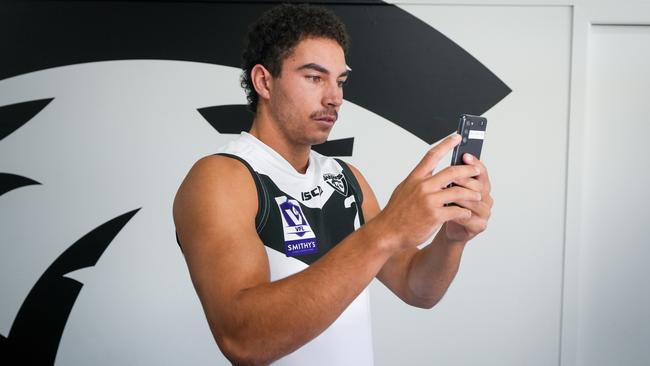
Southport teammate Daniel Charlesworth, who doubles as a medical student at Griffith University, added that the early intervention of CTE symptoms could allay fears among players about their long-term wellbeing.
In recent years increased research into the debilitating brain disease has come to the forefront of contact sporting codes.
While Charlesworth said he was yet to suffer a major head trauma the insights BioEye provided would instil confidence into the playing group that they would ultimately be informed and protected.
“It’s certainly something I’ve thought about; obviously having the knowledge of the health aspect being a medical student and seeing some of my friends who have been concussed multiple times – I think if that was me I’d be quite concerned,” he said.
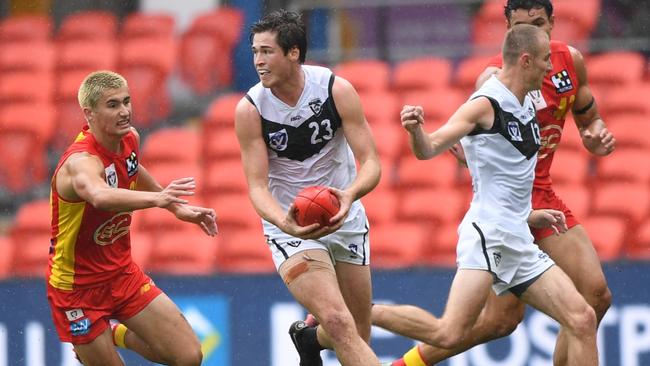
“If it’s something that happens a lot, maybe you need to think how much you want to keep playing football.
“But having this technology is great, it’s certainly going to help minimise the consequence of concussion and hopefully prevent more cases of CTE in the future.”

